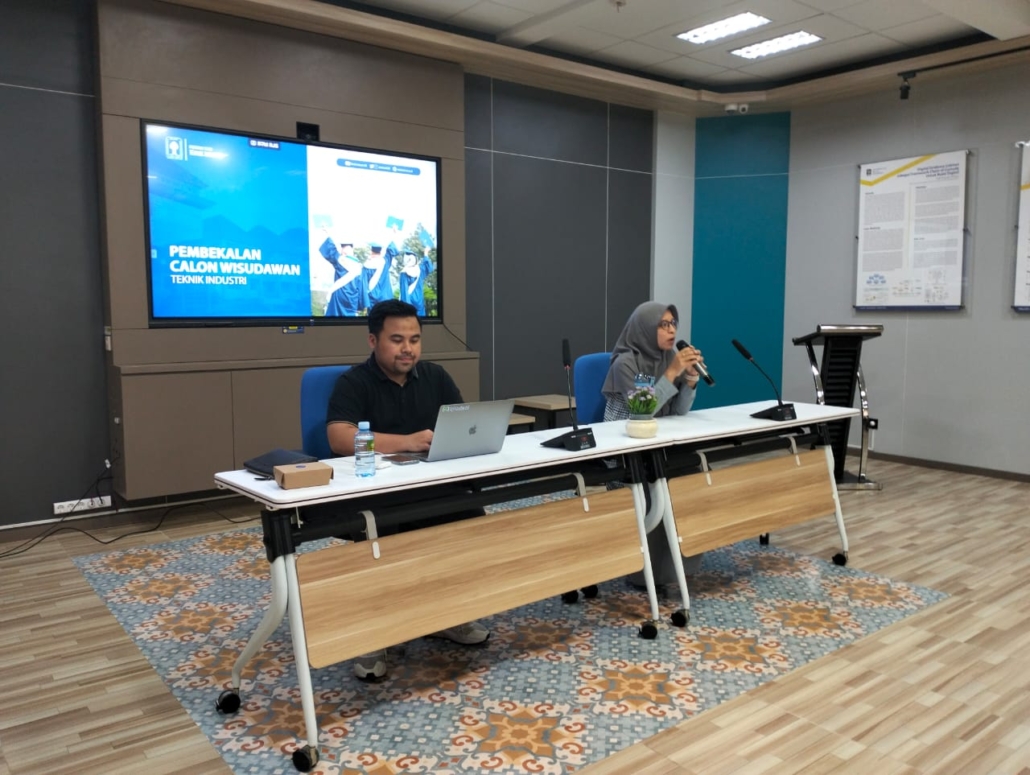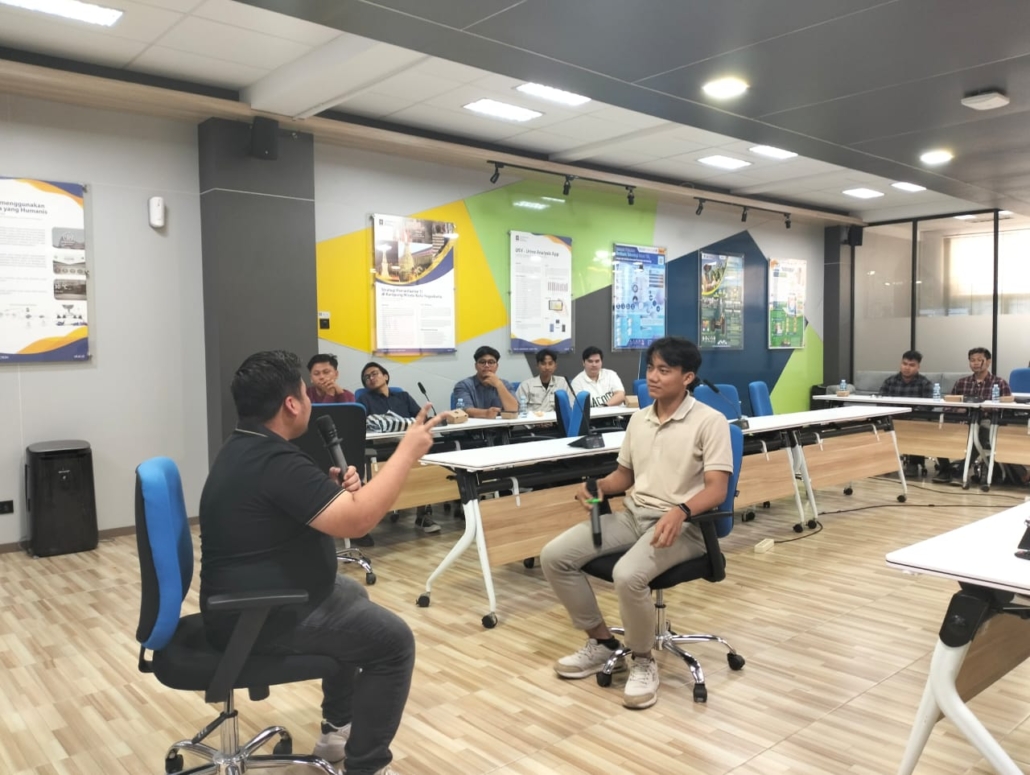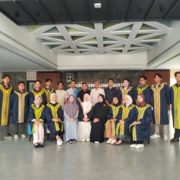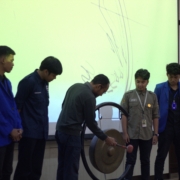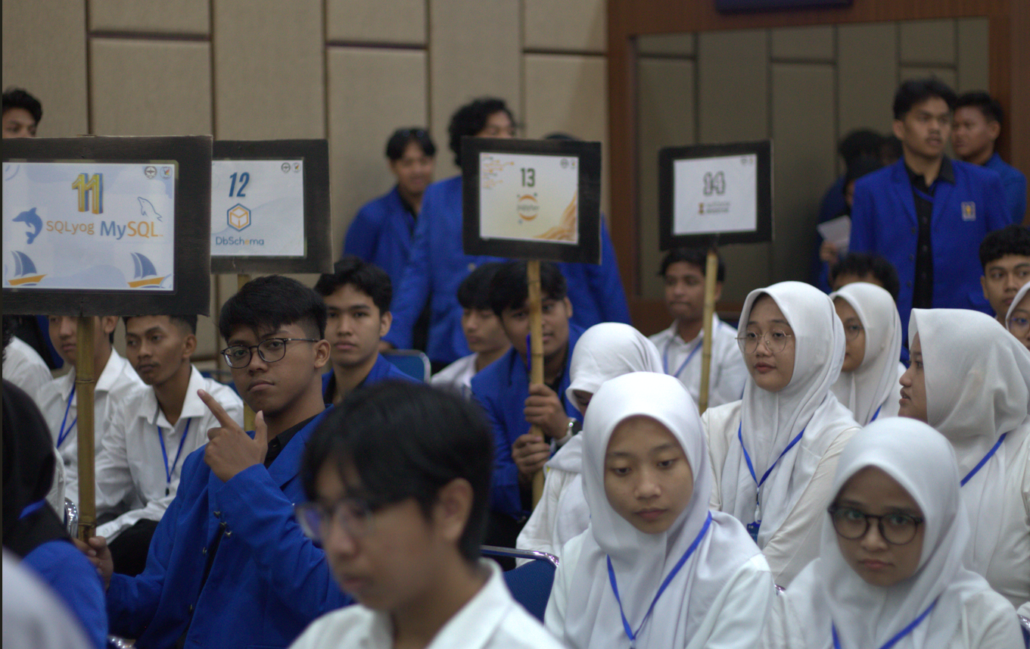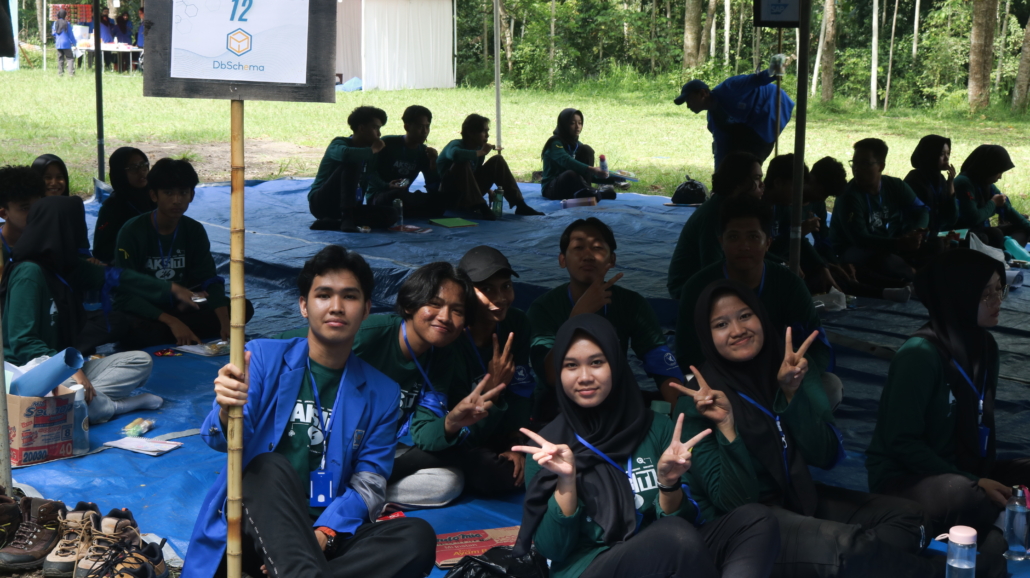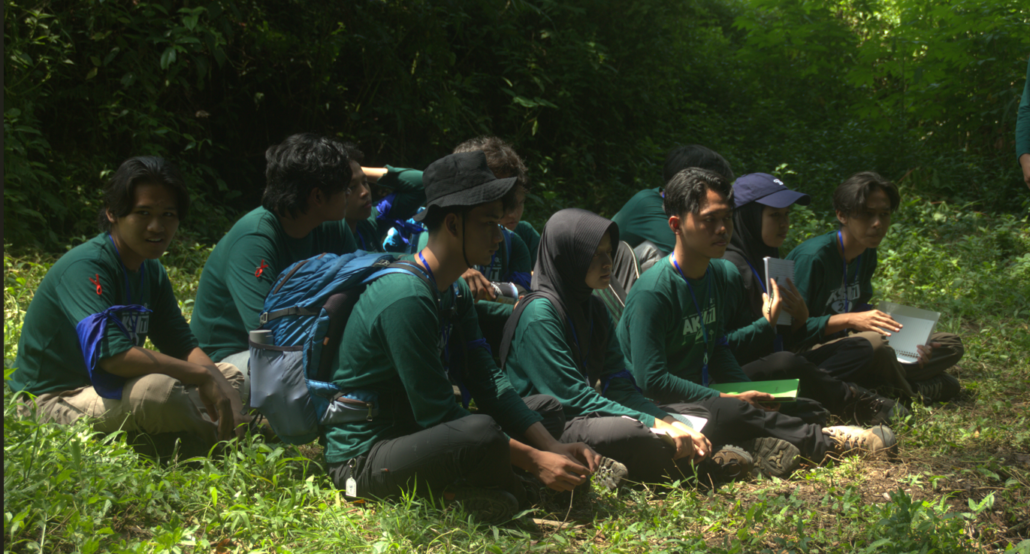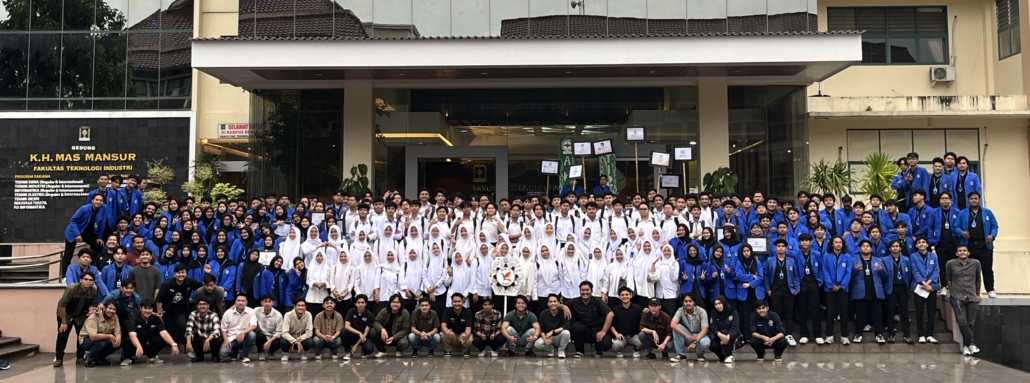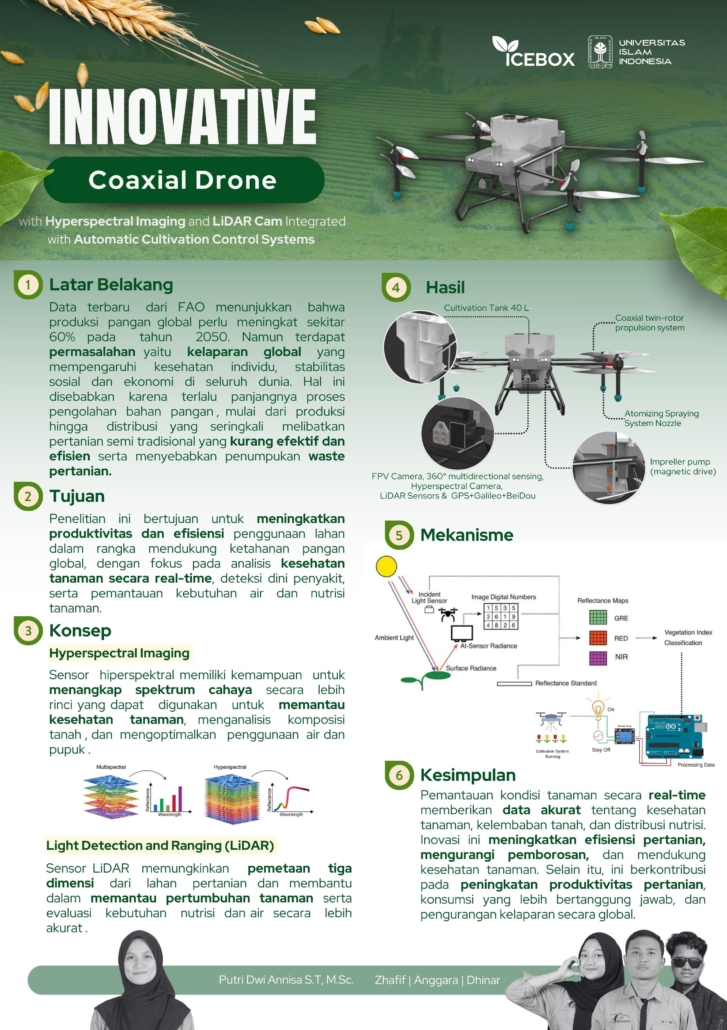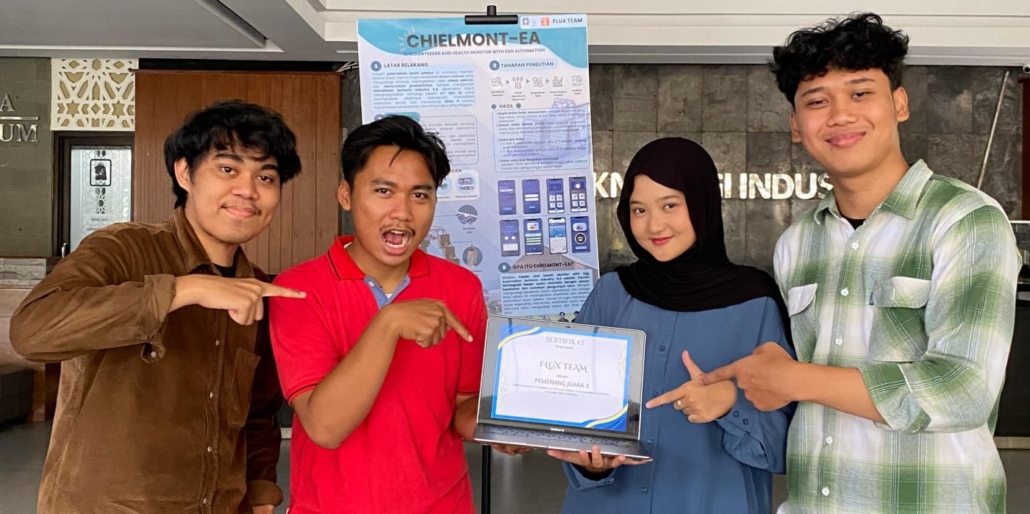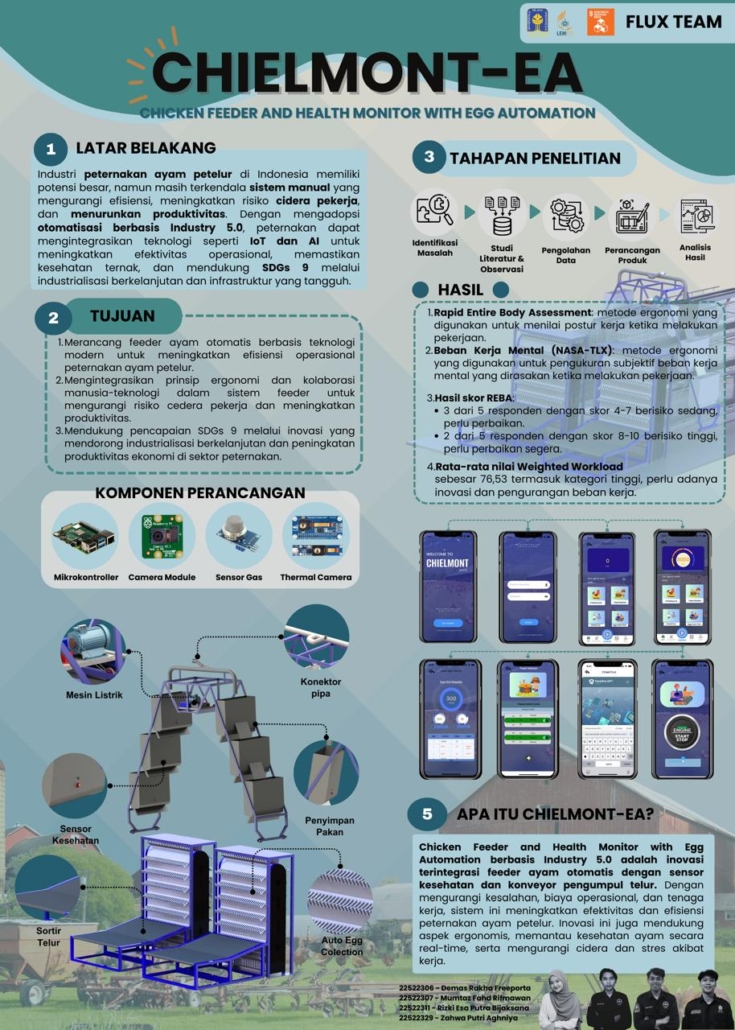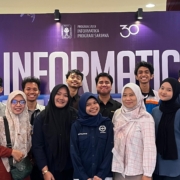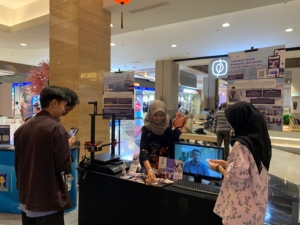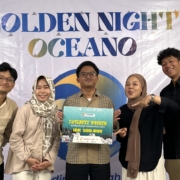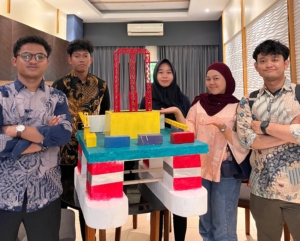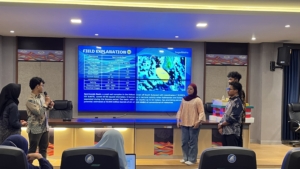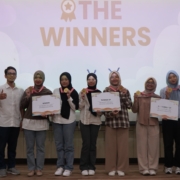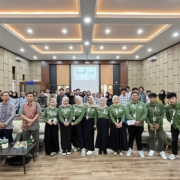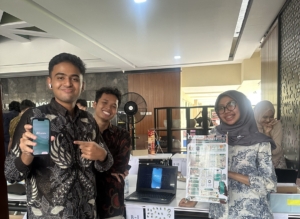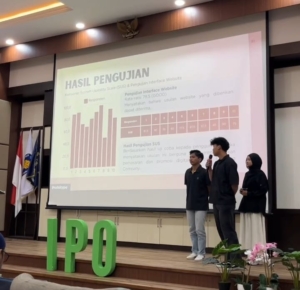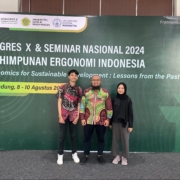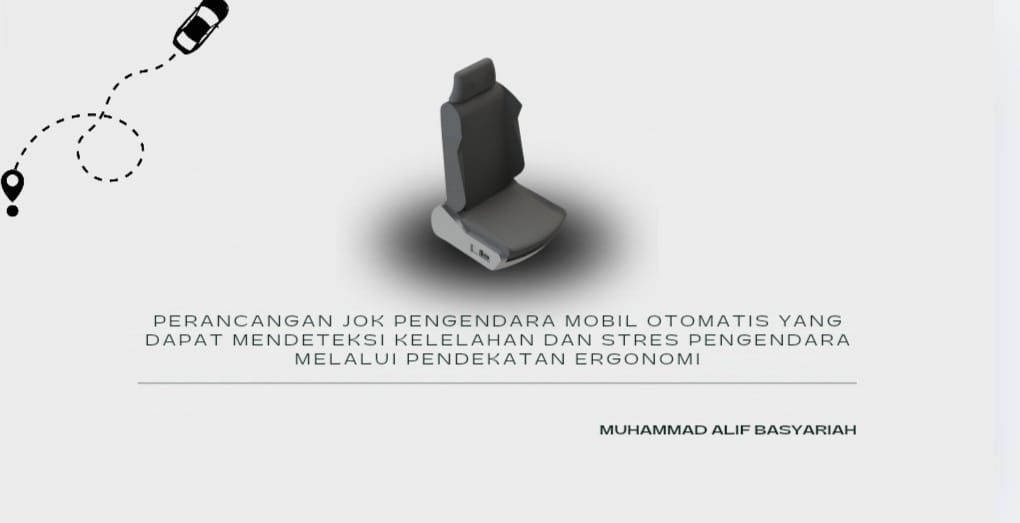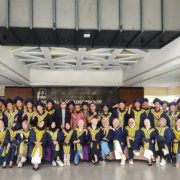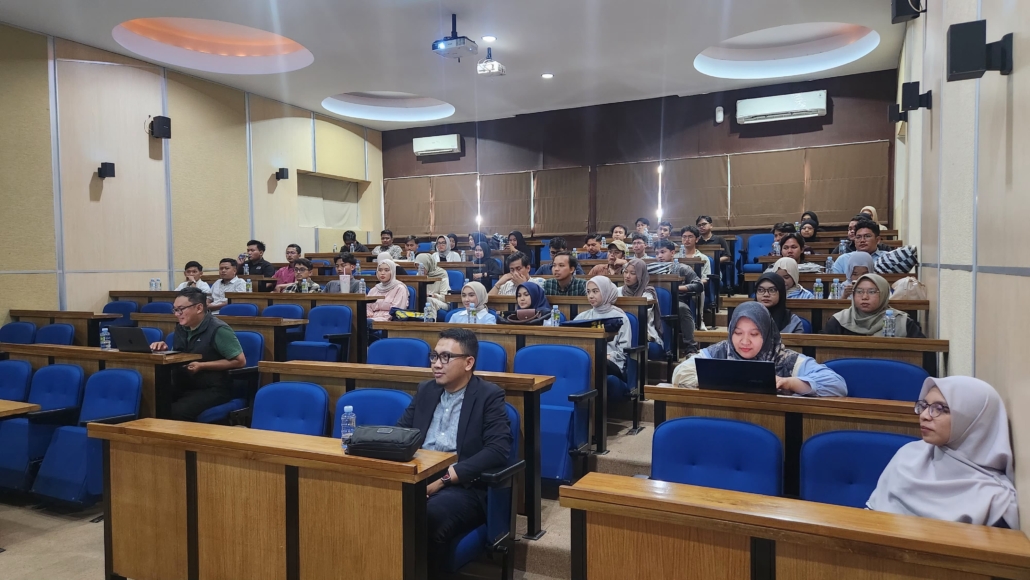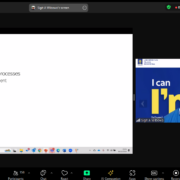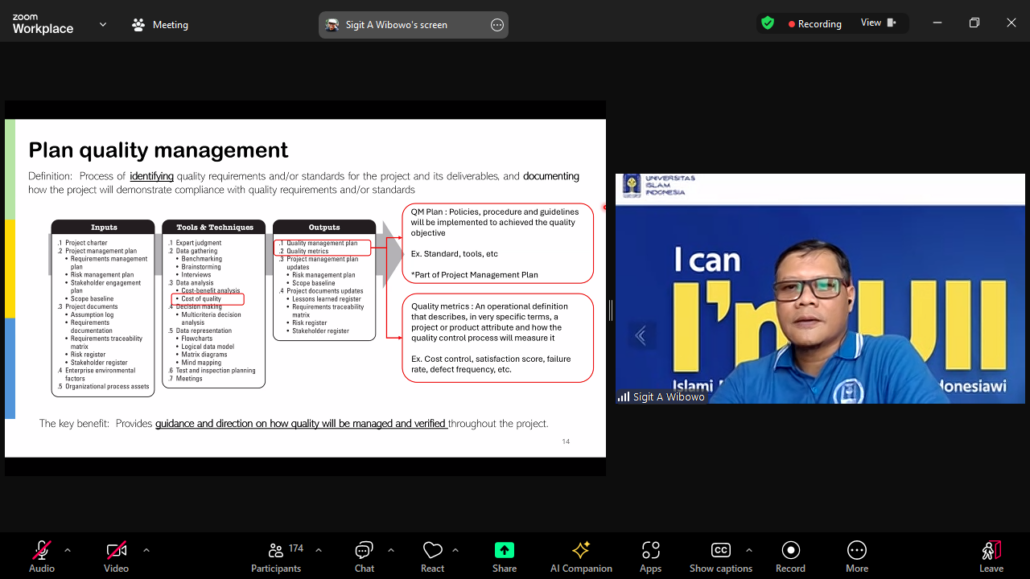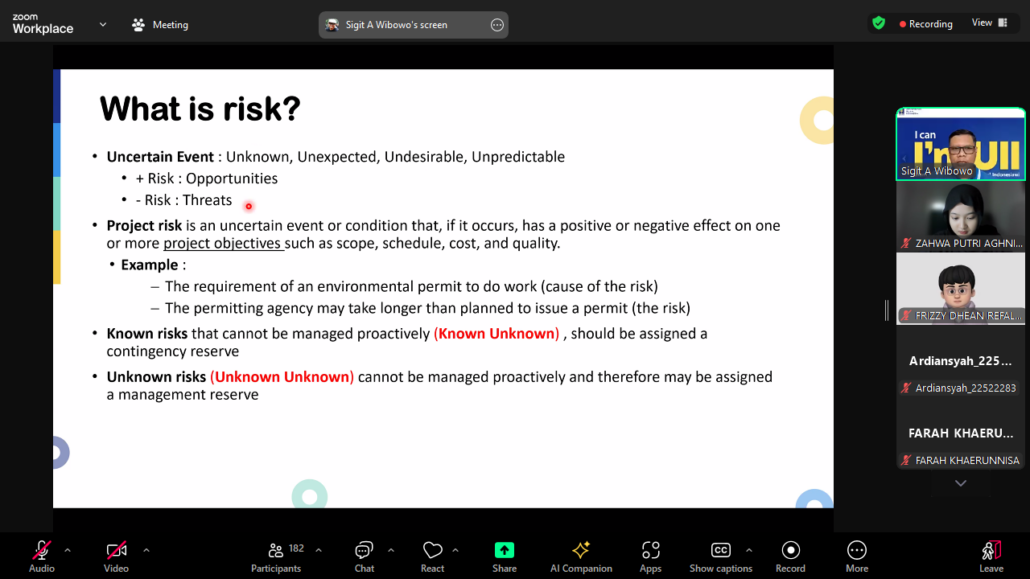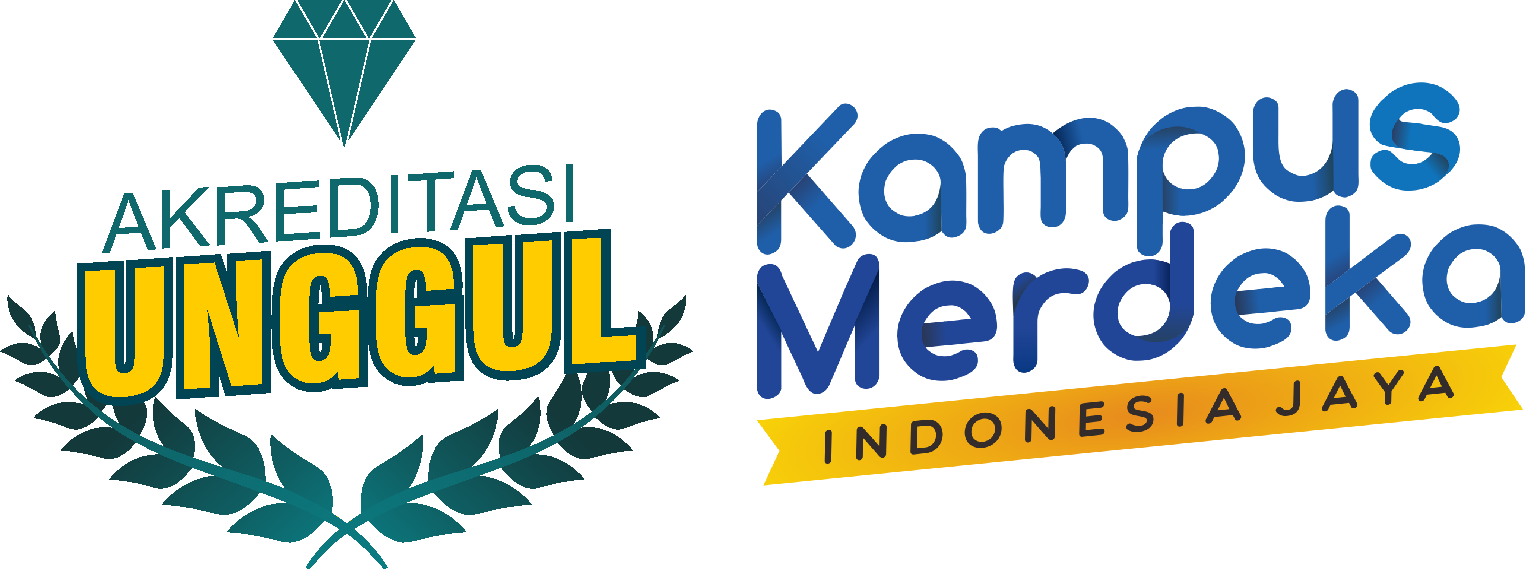The Manufacturing Systems Laboratory (SIMAN), Department of Industrial Engineering, Faculty of Industrial Technology (FTI), Universitas Islam Indonesia (UII), once again hosted the EXPO Big Project DPTI 2024. A total of 69 teams of Industrial Engineering students from FTI UII participated in this event, which serves as the culmination of the Basic Industrial Engineering Design (DPTI) course practicum. In this Expo, participants were challenged to create, design, and develop innovative products, showcasing the application of the knowledge they have acquired throughout their studies.
EXPO BIG PROJECT DPTI 2024
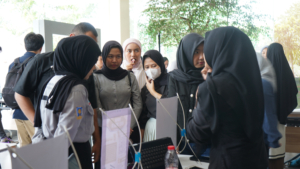
With the theme “Beyond Green: Exploring Sustainable Solutions and Innovations,” the Expo was held on Friday (01/03) with great enthusiasm. Hosted at the Hall of K.H. Mas Mansyur Building, each team displayed their product designs, which were divided into several categories: Enhancing Lives, Preserving Dignity, Nurturing The Earth, and Ensuring Health. Through engaging media, visitors were not only able to view the students’ innovative works but also interact directly with the participants to understand the product designs and their development processes.
Dinda Meilia Rhepon, a SIMAN Laboratory assistant and the person in charge of this event, expressed her gratitude and excitement over the success of the Expo.
“Alhamdulillah, the DPTI Big Project 2024 Expo ran smoothly. All participants were enthusiastic, showcasing their posters and presenting impressive animated videos. Hopefully, the products developed through this Big Project can be further advanced, compete in other competitions, and inspire the new students,” she said.
Dinda also mentioned that the excitement of the Expo would continue the following day with the Top 10 Presentation. In this stage, the top 10 teams would present their products directly, to be evaluated by a panel of judges.
TOP 10 PRESENTATION
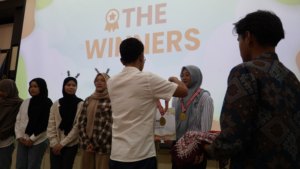
The Top 10 Presentation took place on Saturday (01/04) in the Auditorium Room on the 3rd floor of the K.H. Mas Mansyur Building. The event began with an opening ceremony hosted by Manik Purbo Ulung and Fildzah Shabrina as MCs, followed by a welcome speech from the Head of the SIMAN Laboratory, Putri Dwi Annisa, S.T., M.Sc.
The program continued with presentations by each of the top 10 teams. The presentations were attended and evaluated by three invited lecturers serving as judges: Ir. Abdullah ‘Azzam, S.T., M.T., IPM, Putri Dwi Annisa, S.T., M.Sc., and Didin Dwi Novianto, S.T., M.LSCM. Following the enthusiastic presentation sessions, the announcement of winners became the highlight of the Expo Big Project DPTI 2024. Awards included 1st Winner, 2nd Winner, and 3rd Winner, along with special awards for categories such as Best Poster, Best Animation, and Favorite Winner.
One of the award-winning product designs was the Aqua Purifier Touch (APT) by team DD-5. This product offers a water sanitation solution utilizing dew and rainwater as the main components. The applied filtration process produces clean water suitable for use, particularly in regions facing water scarcity.
“Our product is designed to assist areas with limited access to clean water, providing a practical solution to future sanitation challenges,” explained Azzahra Febriana, a member of team DD-5.
Azzahra also shared her experiences during the Expo, stating that the process was not easy from the beginning until the day of the event. Through this Expo, Azzahra and her team learned to develop creative ideas addressing societal issues in line with the chosen theme.
This activity serves as one of the platforms provided by the Industrial Engineering Department at FTI UII for students to nurture their creativity. Through the Big Project, students are encouraged to create solutions that are not only technology-based but also considerate of environmental issues.
Congratulations to the winners and all students who participated in the SIMAN Big Project Expo 2024! Keep innovating, creating, and contributing to a better future. Salam Satu Hati!
Below is the list of award recipients for the EXPO Big Project DPTI 2024:
| TIM | KATEGORI | NAMA MAHASISWA | NAMA PRODUK |
| DC-1 | 1st Winner | Annisa Nazala Aflah | Scy Shield |
| | Fayef Shorea Hendri | |
| | Sakura Holly Oceania Wibowo | |
| DD-5 | 2nd Winner | Raudatul Salsabila R | APT: Aqua Purifier Tech |
| | Aisha Azahra Dani Atmaja | |
| | Azzahra Febriana | |
| DC-4 | 3rd Winner | Dimas Saputra | Chekker Bar |
| | Bella Dian Elok Mahardika | |
| | Aura Ramadhani | |
| DD-10 | Best Poster | Anis Nur Handayani | TOPPI |
| | Annisa Nur Harimurti | |
| | Sevy Dwi Ramadhina | |
| DC-11 | Best Animation | Naila Desca Mufadhila Ilmi | SmartChair |
| | Nabila Putik Aprilia | |
| | Amanda Tatyana Cindynovika | |
| DB-11 | Favorite Winner | Farez Abyan Pashaqila | Guardian Gear |
| | Evins Tito | |
| | Luthfia Labibah | |
| | | |
Syawarani Gayatri
